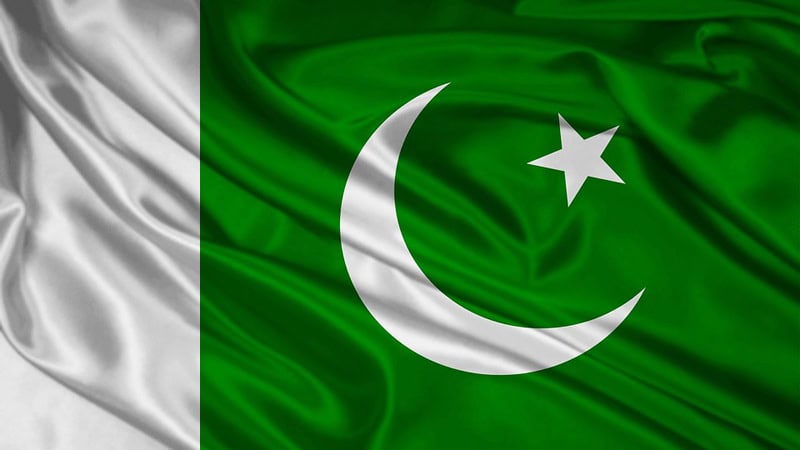Islamabad: Vote-counting began Wednesday in a knife-edge Pakistan general election as former cricket hero Imran Khan sought power on a day marred by a bloody suicide bombing and claims of military interference.
Analysts said the vote was too close to call as polls closed at 6:00 pm (1300 GMT), despite widespread allegations of pre-poll meddling by the armed forces in favour of Khan, which saw the process dubbed Pakistan’s “dirtiest election”.
Gallup Pakistan estimated turnout at between 50 to 55 percent in an electorate of nearly 106 million, similar to the previous contest in 2013.
TV reports showed election workers sorting through massive piles of paper ballots at polling stations across the country.
https://twitter.com/AJEnglish/status/1021945632506822656
There were more than 19 million new potential voters, including millions of women and young people.
A suicide bombing in the southwestern city of Quetta, claimed by the Islamic State (IS) group, killed at least 31 people and cast a shadow over voting day.
Hashim Ghilza, a local administration official, said the bomber tried to enter a polling station.
“When police tried to stop him he blew himself up,” he told AFP.
Debris, bloodstains and charred vehicles littered the road outside the polling station as the dead and injured were rushed to hospital accompanied by distraught loved ones.
It was the second major attack by IS this month in Balochistan province after an earlier blast at a campaign rally killed 153.
– Two-way race –
The vote was a rare democratic transition in the populous but poor nuclear-armed Muslim country, which has been ruled by the powerful military for roughly half its history.
The contest largely became a two-way race between Khan’s Pakistan Tehreek-e-Insaf (PTI) and the incumbent Pakistan Muslim League-Nawaz (PML-N) of ousted premier Nawaz Sharif, whose brother Shahbaz is leading its campaign.
Election researcher Azeema Cheema said the contest remained “too competitive to call”, with the most populous province of Punjab likely to be the key following fierce campaigning in battleground areas there.
Khan, 65, cast his vote in Bani Gala, a suburb of the capital Islamabad, telling the media it was “time to defeat parties which kept this country hostage for years”.
In Lahore, rival Shahbaz Sharif called on Pakistanis to “get out of their homes and… change the fate of Pakistan” before casting his own vote and flashing a victory sign.
But other voters in Lahore, capital of Punjab and traditionally a PML-N stronghold, said they were abandoning the party in favour of PTI.
“I have voted for PML-N my whole life but this time I voted for PTI because Imran Khan has promised free education and health,” said 75-year-old Uzma Akram.
Up to 800,000 police and troops were stationed at more than 85,000 polling stations across the country, after a string of attacks targeting political events in the final weeks of the campaign killed more than 180 people, including three candidates.
An earlier attack in Balochistan Wednesday left one policeman dead when a hand grenade was thrown at a polling station in the village of Koshk.
In the northwestern town of Swabi one PTI worker was killed in an exchange of fire with a rival party, police said.
– ‘New Pakistan’ –
Khan campaigned on populist promises to build a “New Pakistan” and vowed to eradicate corruption, clean up the environment and construct an “Islamic welfare” state.
But the erstwhile playboy’s bid for power was dogged by widespread accusations he is benefiting from the support of the country’s powerful security establishment. The media, activists and think tanks have decried a “silent coup” by the generals.
The military rejected the accusations and said it has no “direct role” in the electoral process.
Election authorities granted military officers broad powers inside polling centres which further stirred fears of manipulation. Journalists were barred from entering polling stations in Lahore and Rawalpindi at several points throughout the day.
Khan also raised eyebrows in recent weeks by increasingly catering to hardline religious groups, particularly over the inflammatory issue of blasphemy — sparking fears a win for PTI could embolden Islamist extremists.
The PML-N says it is the target of the alleged military machinations. Nawaz Sharif was ousted from power last year and jailed over a corruption conviction days before the vote, removing Khan’s most dangerous rival.
A third party, the Pakistan Peoples Party headed by Bilawal Bhutto Zardari — son of slain prime minister Benazir Bhutto — could be called upon to form a coalition with any winner.
Radical groups such as the Milli Muslim League linked to Hafiz Saeed, the man accused of masterminding the 2008 Mumbai attacks, also contested the polls, though many are running under the banner of smaller, lesser-known parties.
Here’re the predictions as reported by Gulf News.
PTI = 107
PML-N = 79
PPP = 30
Others = 56
Currency Market Associates (CMKA)
PTI = 25% or 68 seats
PML-N = 26% or 71 seats
PPP = 16% or 44 seats
Others = 33% or 90 seats
Gallup Pakistan
PTI = 85-95 seats
PML – N = 80-90 seats
PPP 35-40 seats
Others 47-72 seats
Topline
PTI = 29% or 79 71 seats
PML-N = 25% or 68 seats
PPP = 20% or 54 seats
Others = 26% or 71 seats
Herald Magazine
PTI = 30 % or 82 seats
PML-N = 27% or 73 seats
PPP = 17 % or 46 seats
Others = 26% or 71 seats
Pulse Consultants
PTI = 92 seats
PML-N = 73 seats
PPP = 34 seats
Others = 73 seats
Credit Suisse
With inputs from AFP

